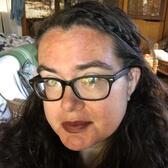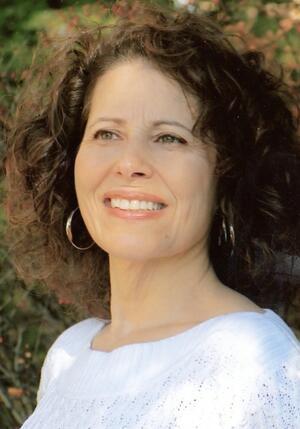The "fine madness" of discovering Lesléa Newman
During an otherwise unidentifiable undergraduate semester, I took a class called The Psychology of the Lesbian Experience. (I’m not even kidding a little bit that that was the title.) I was not politically savvy enough at the time to think that this class could be problematic if it were not taught by actual lesbians (it was), or to worry about the idea of representing queerness via the lense of psychology. I found the class in the small newsprint pages of the University’s course listing and signed up.
I read a lot that semester, previously unaware that the Well of Loneliness, Oranges are not the Only Fruit, and Stone Butch Blues existed. And by read a lot, I mean, I read in class, and by in class, I mean, all my classes that were not this particular one. I spent most of my time reading a medium sized book with a lipstick mark on the cover, Good Enough to Eat by Leslea Newman, about a 25-year-old Jewish woman who’s bulimic and, over the course of the novel, comes out to herself.
Most people probably know Newman from her short story, “A Letter to Harvey Milk,” but I didn’t actually read that until later that semester, when I was blowing through bookstores in Northampton and Amherst searching for every single word she’d written. I bought everything, eventually, including a small blue volume of poetry called “Sweet Dark Places.” The poems are bright and erotic and stark, sometimes hilarious (“Dream”), and feminist.
When I read these poems ten years ago, I was a very different kind of Jew than I am now, opening so much of tradition and liturgy, literally, for the first time, and was in awe as to how much it could contain. It still amazes me, reading them again, now, when I’m older and more political and self identifying more as culturally Jewish than anything else, that I’m so comforted by and located in Newman’s words, even when they provoke and disturb (“Rage,” “Mugged”).
Feminist Bookstore News, in a review of “Love Me Like You Mean It,” another poetry collection of Newman’s (which is now combined with “Sweet Dark Places” into one anthology called “Signs of Love,”) used the term “fine madness” to characterize what makes her writing so remarkable. For me, that madness exists in the attention to details that results in the stark, lusty, bold illustration of truth.








